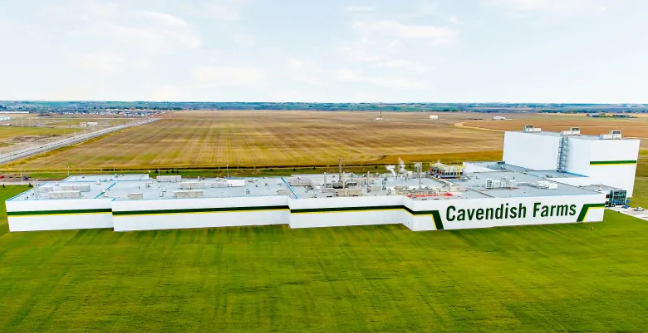The new plant will bring about 240 jobs to the community
By Diego Flammini
Staff Writer
Farms.com
A major potato processor had expanded its presence in Alberta.
Cavendish Farms opened the doors to its new processing facility in Lethbridge, Alta. on Thursday.
The $430-million plant replaces Cavendish’s previous facility in the community. The new building, which crews began constructing in 2017, spans 346,000 square feet (about eight acres) and will require 735 million pounds of potatoes annually.

That volume equates to almost 12,000 acres more than Cavendish Farms currently depends on. The plant will also employ 238 people.
The opening of the facility is a strong show of support for Alberta’s ag industry.
"We are proud of what Alberta's ag producers do every day at the highest standards to produce food for the world," Premier Jason Kenney said during the ribbon-cutting ceremony. "We do so with a shrinking environmental footprint with growing yields using smart agro-tech in an industry that is rooted in our past but is very much focused on the future, driven by innovation."
Potato production in Alberta has been on the rise in recent years.
Growers in the province planted 53,570 acres of potatoes in 2017 and 55,410 acres in 2018. That growth equates to a year-over-year increase of 3.4 per cent, Statistics Canada says.
This new processing facility will help farmers plant more potatoes.
“Our growers look forward to planting more acres,” Terence Hochstein, executive director of Potato Growers of Alberta, told Farms.com. “Cavendish Farms expanded its needs and we’re excited about the opportunity to meet those needs.”